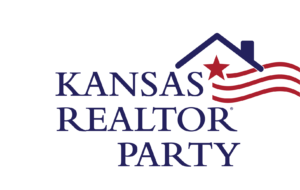 Legislation before the Kansas Legislature would legalize rebates in Kansas real estate transactions. HB 2494 would modify provisions in Kansas license law to make rebates legal, as long as they are disclosed. The Kansas Association of REALTORS® is opposed to this legislation.
Legislation before the Kansas Legislature would legalize rebates in Kansas real estate transactions. HB 2494 would modify provisions in Kansas license law to make rebates legal, as long as they are disclosed. The Kansas Association of REALTORS® is opposed to this legislation.
Current Law on Rebates in Real Estate Transactions
It is illegal in Kansas for a real estate broker or salesperson to accept, give or charge a rebate in a transaction under the Kansas real estate brokers’ and salespersons’ license act (KREBSLA).
K.S.A. 58-3062 states:
Prohibited acts. (a) No licensee, whether acting as an agent, transaction broker, or a principal, shall…(3) [a]ccept, give or charge any rebate or undisclosed commission.
Furthermore, K.S.A 58-3062(a)(4) goes on to state that it is unlawful for a licensee to:
Pay a referral fee to a person who is properly licensed as a broker or salesperson in Kansas or another jurisdiction or who holds a corporate real estate license in another jurisdiction if the licensee knows that the payment of the referral fee will result in the payment of a rebate by the Kansas or out-of-state licensee.
The Legislature has not provided in statute a definition of “rebate” for the purposes of KREBSLA.
History of Rebate Prohibition in Kansas
Rebates in real estate transactions have been illegal in Kansas since KREBSLA was first enacted in 1980. This prohibition was expanded to include rebates connected with referral fees in 1989. At no point did the Legislature find the need to define the term “rebate” in statute. In 2004 the prohibition on licensees offering prizes, gifts, and gratuities was repealed, thereby creating the need to distinguish between a legal gift, prize or gratuity and an illegal rebate.
To give the industry guidance, the Kansas Real Estate Commission (KREC), which has jurisdiction to enforce KREBSLA on its licensees, issued non-legally binding guidance on the subject which indicated that anything of value provided to a principal in a real estate transaction under 0.5% of the purchase price would not be considered a rebate.
However, KREC revised its guidelines for permissible gifts and gratuities effective August 29, 2016. In doing so, the Commission rescinded the previous 0.5% threshold for rebates. It is KAR’s belief that KREC did this because of a concern by the Commission that it lacked the necessary statutory authority to make such a distinction.
Regulatory Efforts
It is apparent that the lack of a precise definition of “rebate” as it pertains to KREBSLA has left many in the industry without clear legal parameters as to what the Commission would consider an illegal rebate and what would continue to be considered a permissible gift or gratuity. With this in mind, the Commission proposed a regulation that would define “rebate” as it pertains to K.S.A. 58-3062(a)(3) and (4).
86-3-32. Rebate; definition. As used in K.S.A. 58-3062 and amendments thereto, “rebate” Shall mean the return of all or part of the purchase price of real estate, whether by cash or cash equivalent, that is promised or agreed to by a licensee and a client or customer before closing and is contingent on the transaction closing. “Rebate” shall include the return of all or part of any commission or compensation paid to a licensee and any transaction that results in, or has as its purpose, the purchase of real estate at a price different from the price specified in the closing statement. “Rebate” shall not include any gift given by a licensee to a client or customer that is not promised or agreed to by the licensee and the client or customer in advance. For the purposes of this regulation, “cash equivalent” shall mean gift cards, prepaid credit cards, and any other item with a value equal to a specific amount of money that can be used in the same manner as that for cash. (Authorized by K.S.A. 2016 Supp. 74-4202; implementing K.S.A. 2016 Supp. 58- 3062; effective P-________ .)
KAR reviewed and supported this proposed regulatory definition.
This regulation was approved by the Kansas Department of Administration and Attorney General, as well as, presented to the Joint Committee on Rules and Regulations of the Kansas Legislature. KREC held a public hearing on the proposed regulation on June 19th, 2017. At the public hearing objections were raised by USAA and/or Cartus that the regulation would interfere with their real estate referral program. Over the following months the Commission revisited the issue, but ultimately decided to table consideration of the regulation indefinitely and pursue a statutory definition in the Legislature.
In December of 2017, the Commission decided to request a Kansas Attorney General’s Opinion on the matter before introducing legislations of its own and formally made the request at its February 19th, 2018 meeting. KAR supports seeking the Attorney General’s opinion as it will provide guidance to the interested parties on whether a legislative remedy is needed.
HB 2494
Throughout this process, KAR, KREC and USAA have had discussions about a possible mutually agreeable resolution. However, when the 2018 legislative session started, USAA opted to introduce HB 2494.
The KAR Government Affairs Committee (GAC) was briefed on HB 2494 at the KAR Capitol Conference. The KAR GAC felt it was premature for the Legislature to pursue HB 2494 until the Attorney General’s Opinion was issued. Both the KAR GAC and Board of Directors voted to oppose HB 2494.
At a hearing before the House Commerce, Labor and Economic Development Committee, KAR provided opposition testimony. First, KAR advised the Legislature that any consideration of this issue is premature until the Attorney General’s Opinion on the matter is issued. This is not likely to occur until after the 2018 Session. KAR believes that the Attorney General’s Opinion will provide guidance to both the interested parties and the Legislature as to what changes, if any, are needed to KREBSLA.
Second, KAR believes that if any legislative solution is seriously considered at present, that solution is to define the term “rebate” only and not upend decades of policy by making illegal rebates, legal. If the Legislature chose to pursue this path, KAR suggest that the previous proposed regulation would be a guide.
Lastly, HB 2494 is too limited in view as it does not consider the full impact to KREBSLA. In order to avoid statutory conflict and unintended consequences, if the Legislature opens KREBSLA up, it must be circumspect in its approach. Significant technical issues with the bill will need to be addressed.
Specifically, it would need to be clear who is responsible for making the disclosure. Is this the licensee whose client is receiving the rebate or the licensed out-of-state third party who is using a referral fee to pay the rebate? Further, what accountability should be considered in legislation for the licensed out-of-state third party? KREC has no jurisdiction over out-of-state licensees in such a matter. If the out-of-state licensee failed to perform, the apparent recourse for an aggrieved Kansas consumer would be against the Kansas licensee.
How about the manner of the disclosure? Should this be on a separate form or part of the sales contract? The timing of the disclosure – at the time of offer or closing? The substance of the disclosure (the amount of rebate and who is it paid to – buyer or seller)? Lastly, what consideration should be given to whether the current prohibition on paying a commission or compensation to unlicensed individuals (including buyers and sellers) would need to be accommodated for when considering that proceeds of a commission will be used to pay for the rebate?
As one can see, many considerations still need to be deliberatively pursued. KAR has had ongoing discussions with interested parties on this issue since the summer of 2017 and we expect to have continued, positive dialogue as we seek the mutual desire of bringing clarity to the issue of rebates. However, at this point KAR cannot support HB 2494 or other related legislation.
In closing, below is an excerpt from the KAR 2018 Legislative Policy Statement approved by the KAR Board of Directors:
Real Estate Licensing and Regulation
In conjunction with the vigilant enforcement of the REALTOR® Code of Ethics, REALTORS® are acutely aware of the importance and necessity of the continued licensure and regulation of the real estate industry by the Kansas Real Estate Commission. At all times, REALTORS® strive to protect the interests of the public by maintaining and perpetuating a high level of competence for those individuals entering and continuing to practice in the real estate industry.
Towards this end, we also recognize the importance of protecting the public by opposing legislation designed to circumvent the licensure and regulation of the real estate industry. Accordingly, we favor reasonable pre- and post-licensing educational requirements to enhance the competency of the industry.
KAR is committed to working with KREC and the Legislature on changes to Kansas license law as needed. Ultimately, it is Kansas real estate licensees that are accountable to KREBSLA every day. This accountability does not similarly exist, at present, for foreign licensees.





